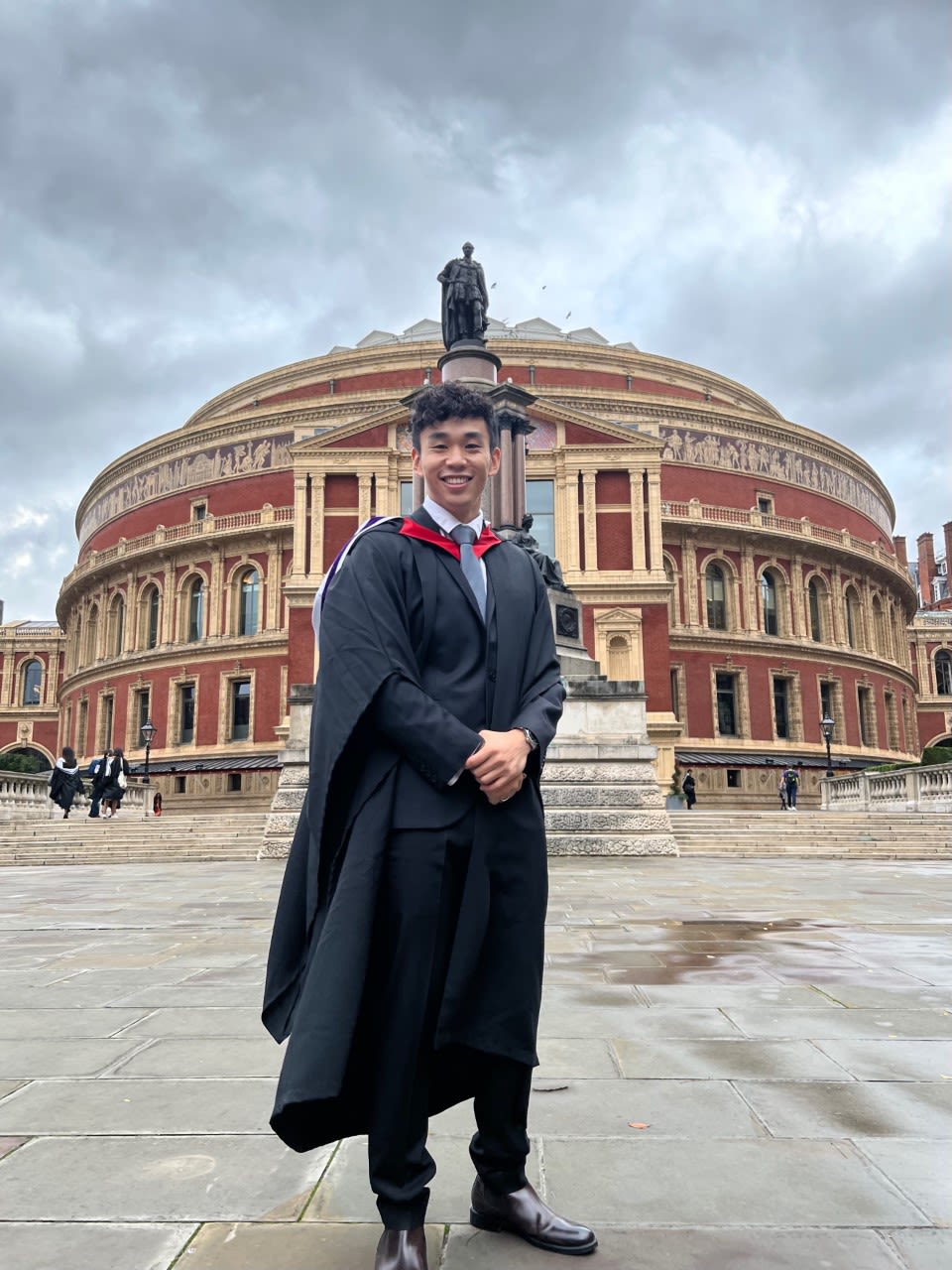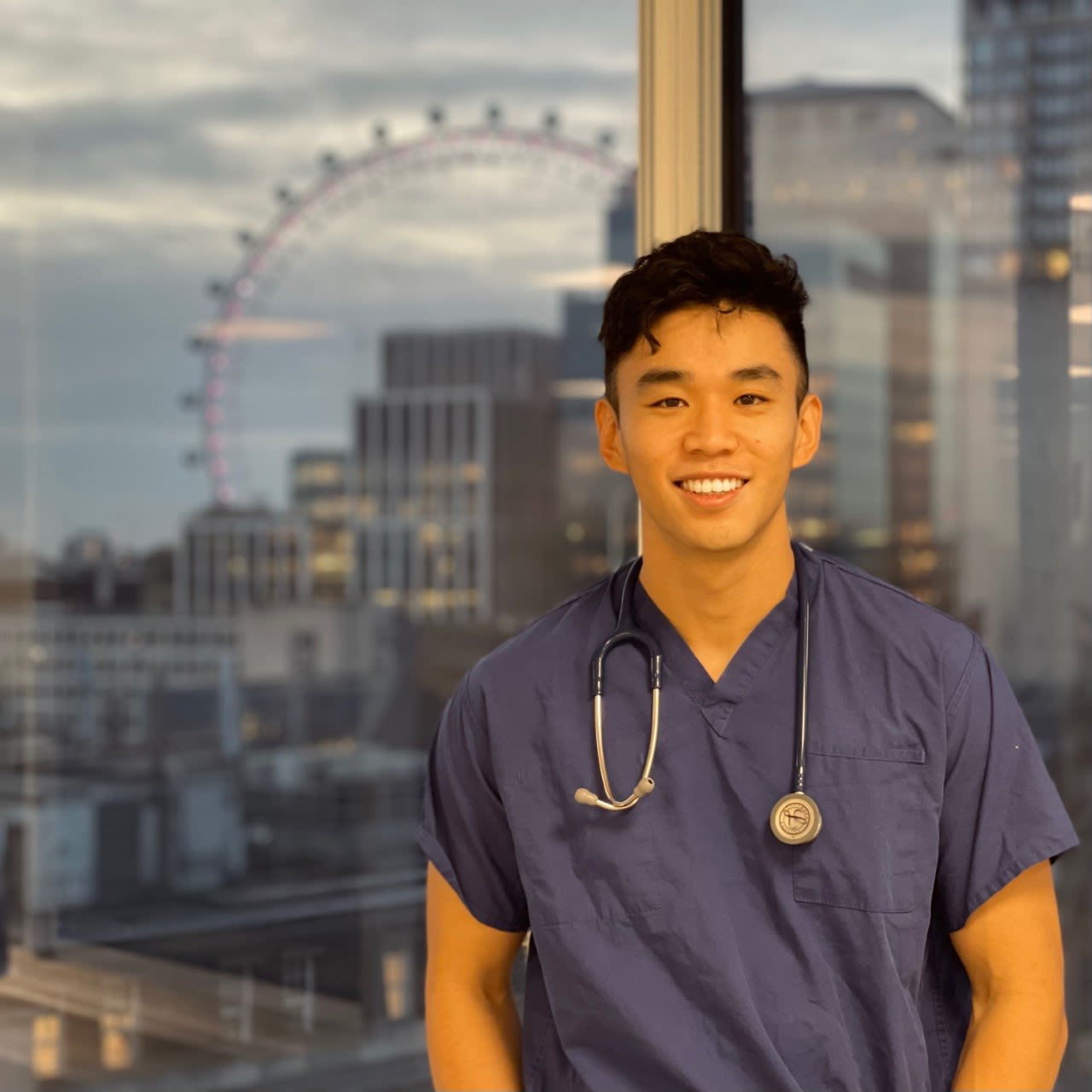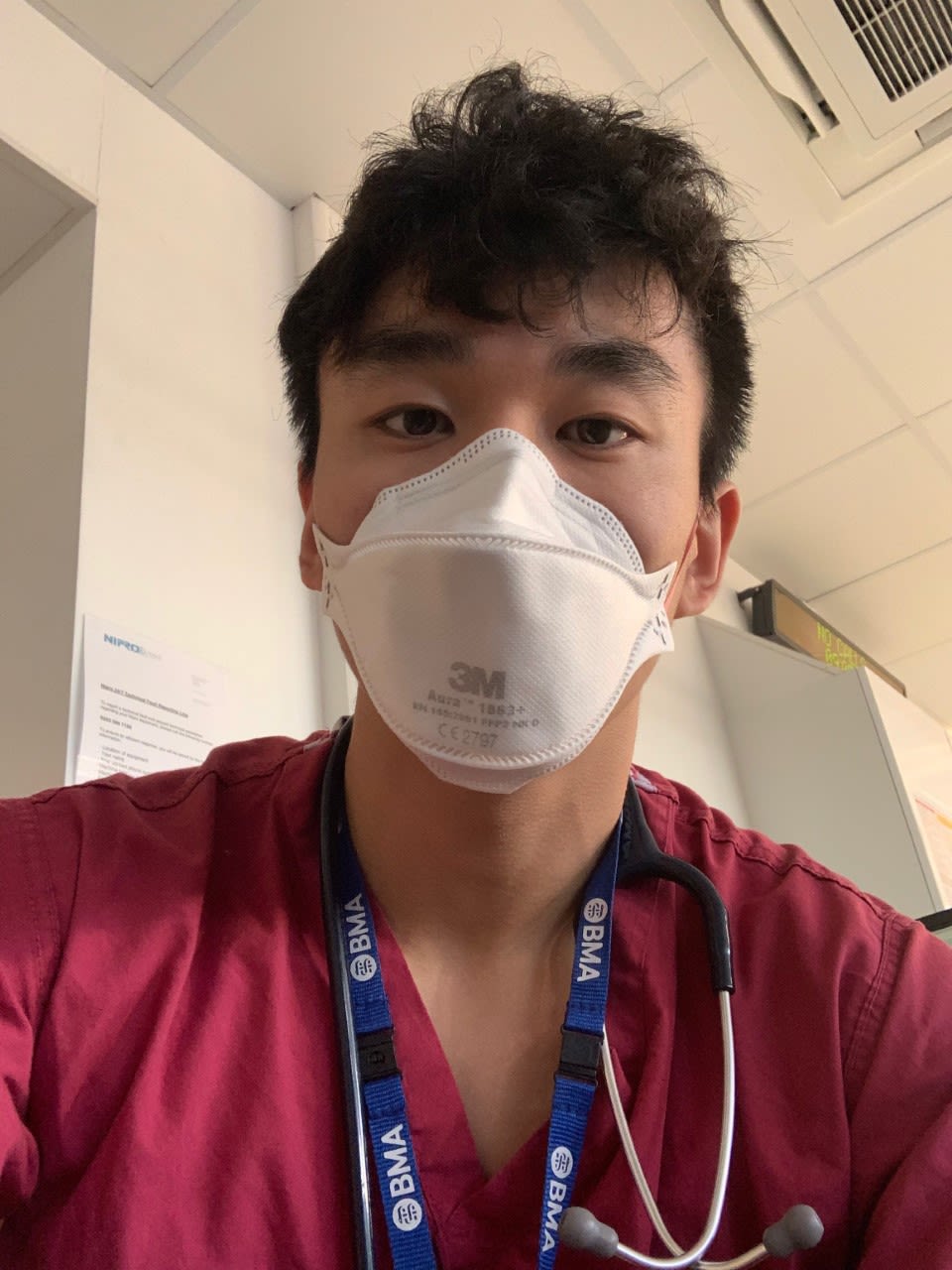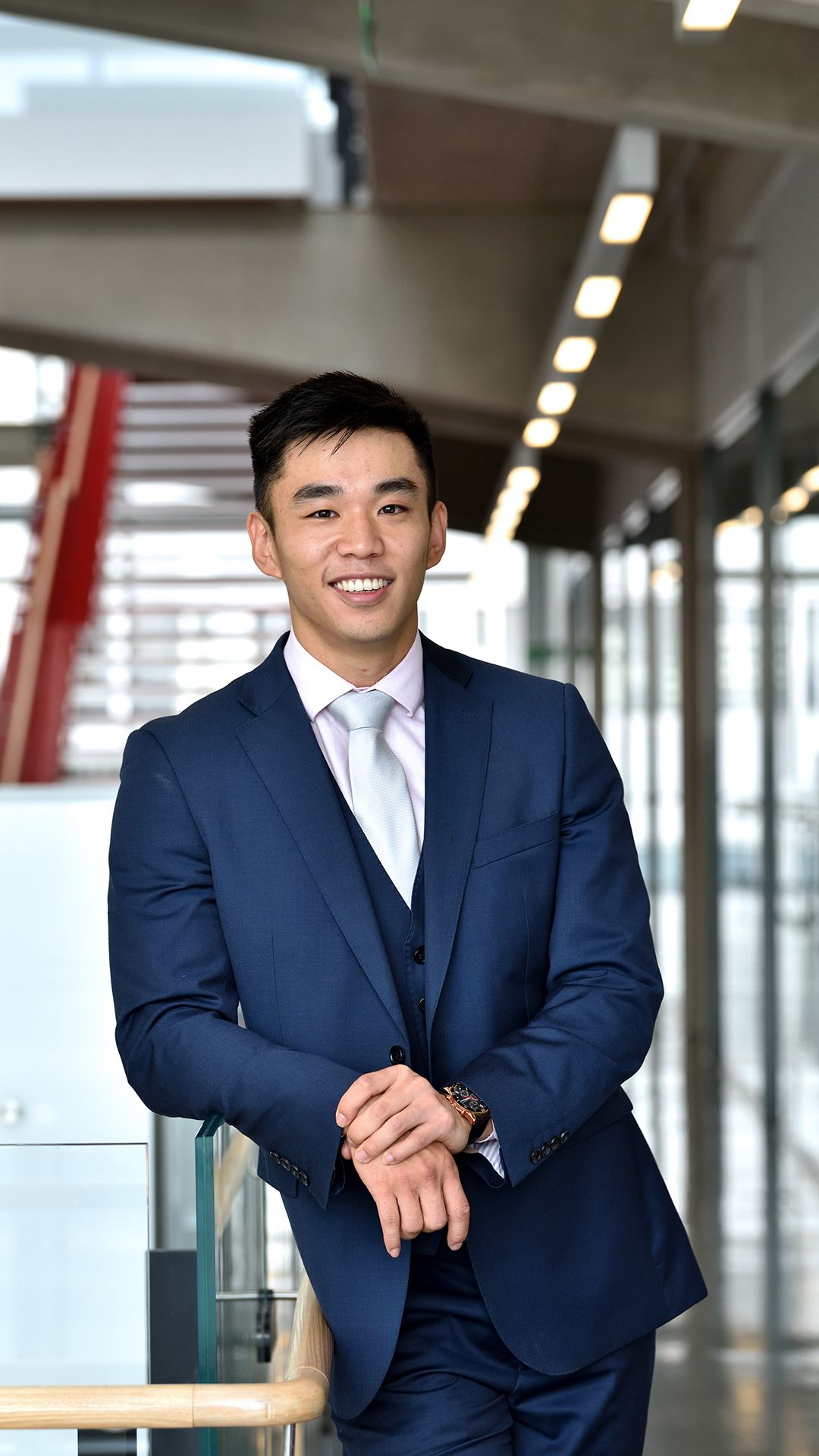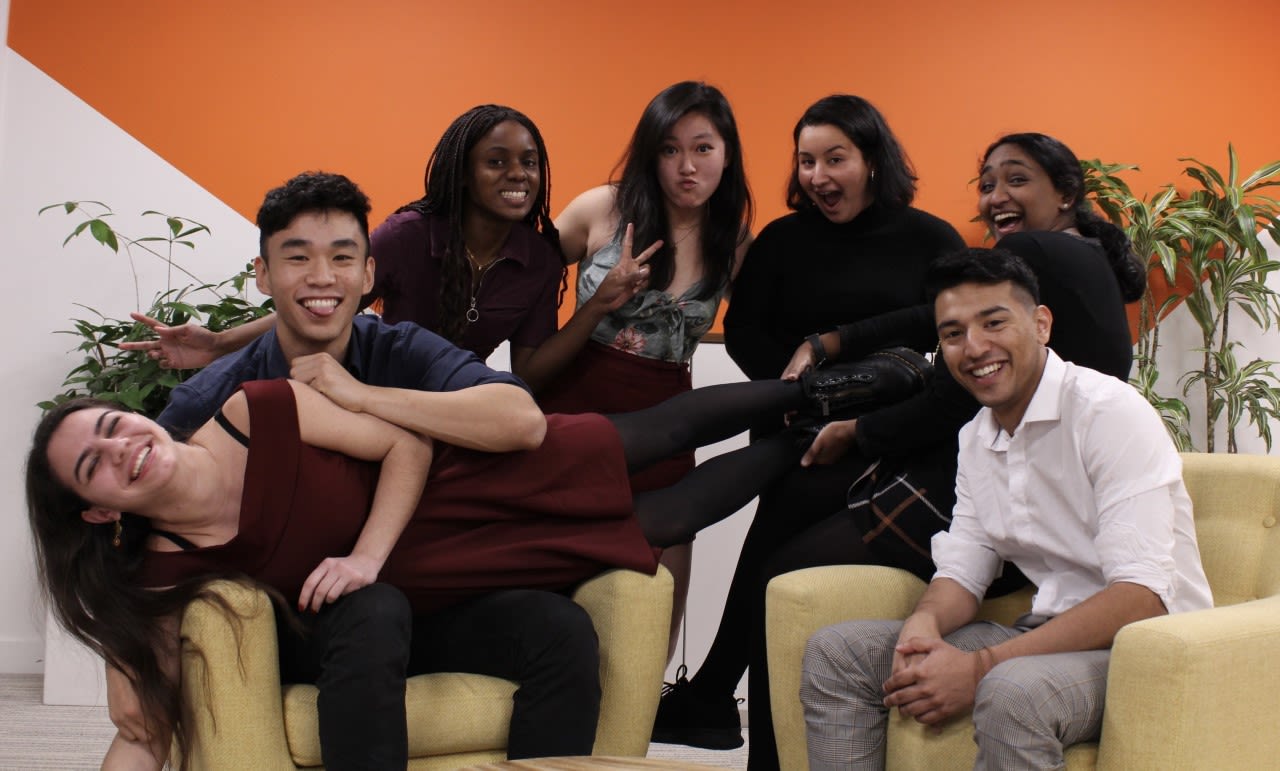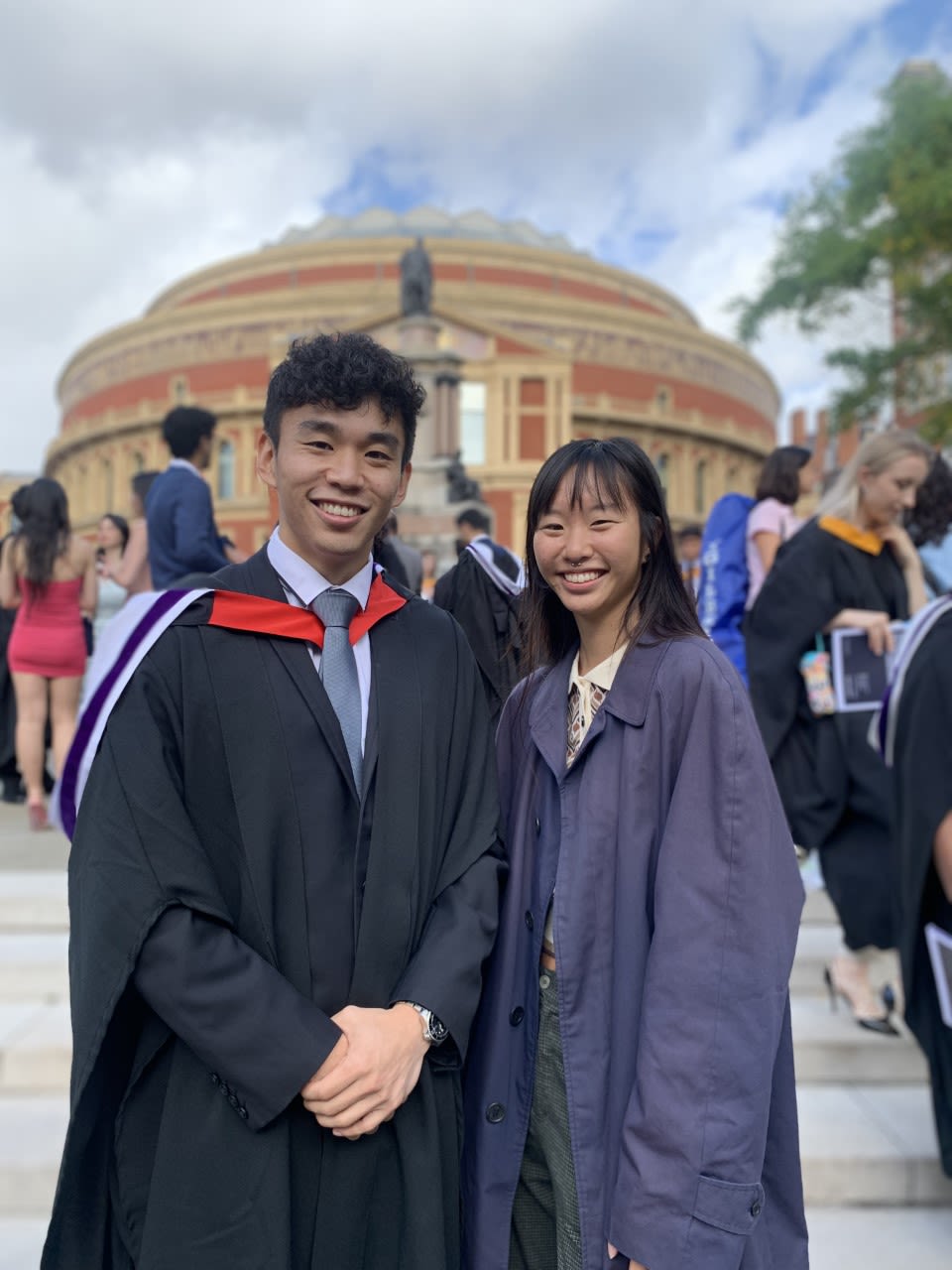Dr Brian Wang
‘During a three year study, half of UK schools had no successful medical school applicants.’ When Brian tells people this, they’re often shocked, and he explains how he’s taken matters into his own hands by starting In2MedSchool.
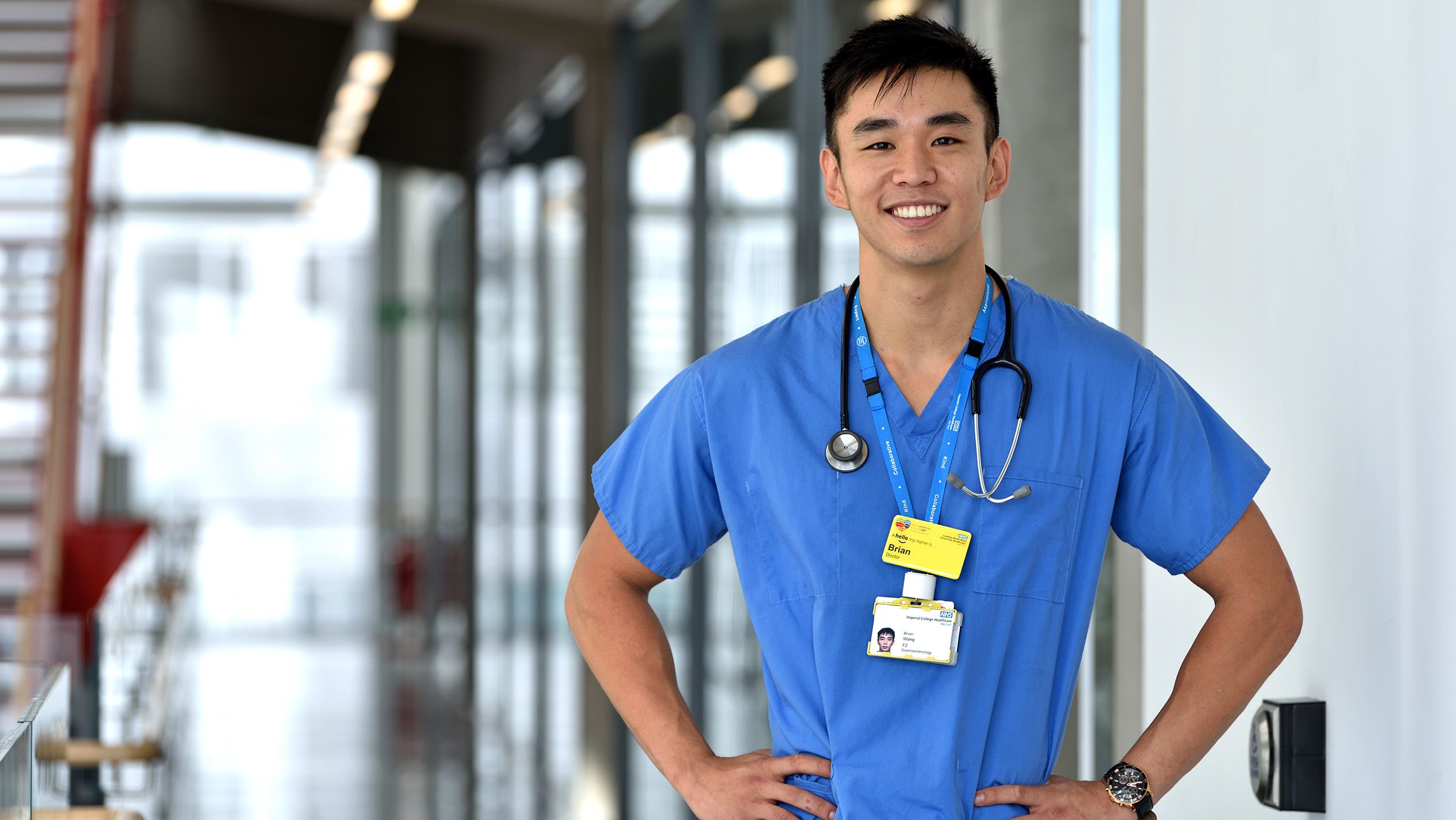
When Brian moved to the UK with his parents, he struggled at school. He even needed a teaching assistant’s support with English. However, there was one subject that always came naturally to him – science.
“It was one of my favourite subjects. And although it’s a cliché, I’ve wanted to work in medicine for as long as I can remember.”
From treating patients from different cultures to witnessing the stress caused by language barriers, Brian’s experience as a medical student and doctor has shown him how important it is to have medical professionals from all walks of life.
For the workforce to become more diverse, he knew he needed to help more young people from underprivileged backgrounds get into medical school. Looking to the future, this would mean patients would see themselves reflected in the workforce and feel understood by medical professionals.
Dedicated to study
Brian graduated from his MBBS in summer 2021. He’s now an academic foundation year two doctor at Charing Cross Hospital. Although he’s completing rotations, he already knows what area he wants to specialise in.
I’ve always been fascinated by the heart. Often people come in with something wrong and think they’re on their deathbeds, but the field of cardiology has advanced so much. We can take someone from being poorly to walking out the door very quickly thanks to the latest interventions in this area.
Dr Brian Wang at his graduation in 2021
Dr Brian Wang at his graduation in 2021
As well as his medical training, Brian also completed his PhD in cardiovascular sciences at Imperial. He was very used to student life by this point, but his PhD was the first time he had to be self-sufficient. “I had to take the lead which wasn’t something I was used to. It was also great to have the opportunity to teach and work as a lab supervisor.” This time had a massive impact on him and shaped who he is today.
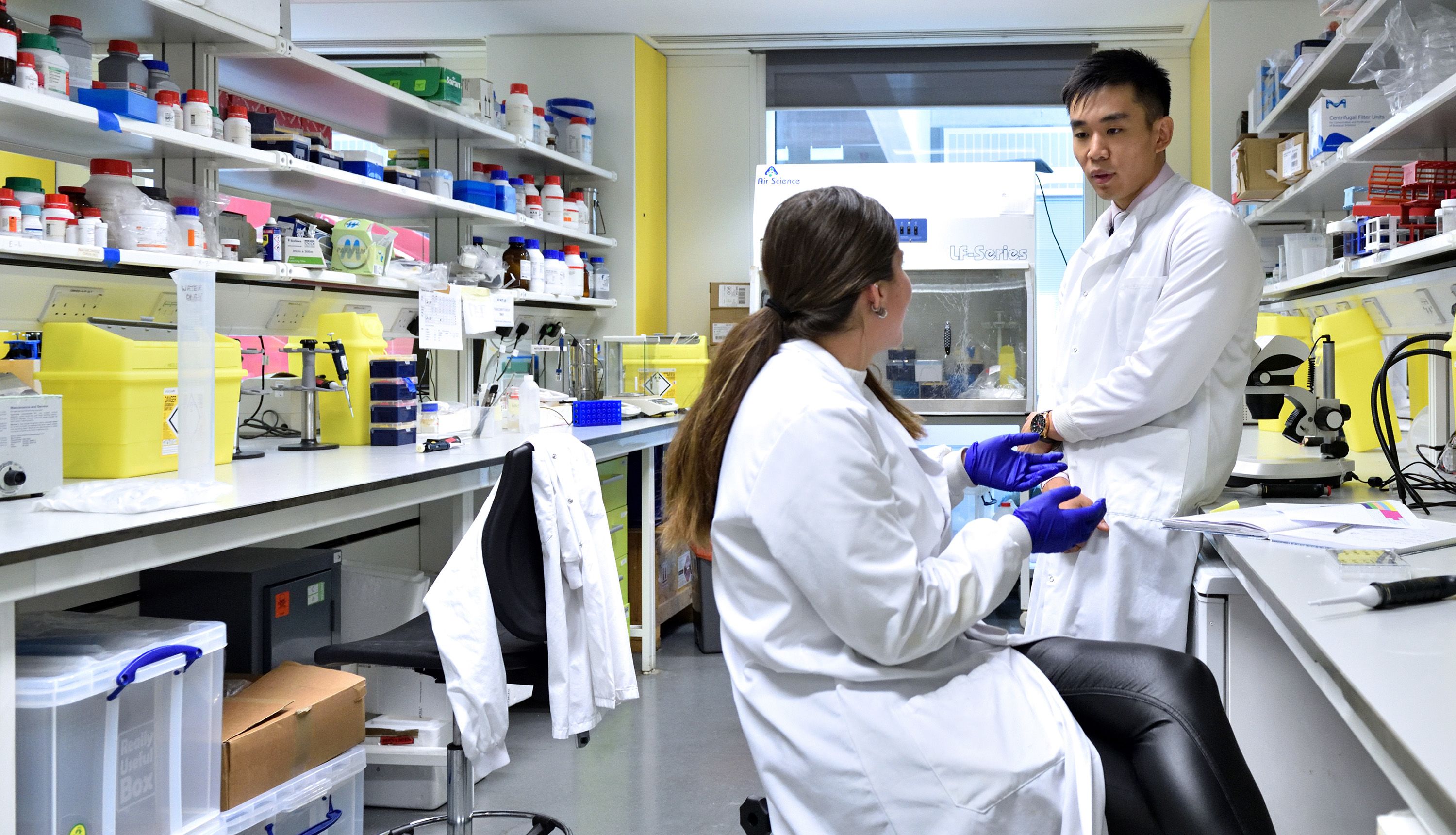
80% of medical school applicants come from only 20% of schools.
Source: Garrud P. (2014) Held and Hindrance in Widening Participation
60% of doctors are privately educated despite only 7% of adults having studied in private schools.
Source: Kirby P. (2016) Leading People 2016. The educational backgrounds of the UK professional elite.
Lack of representation
As a medical student, Brian noticed the disparity between the healthcare workforce and their patients.
He explains, “London is so diverse. For many patients, English isn’t their first language. The pandemic really highlighted the issues caused by this cultural gap – from receiving timely treatment to vaccine uptake. I think it’s because there are communities that don’t see themselves represented.”
During the summer of 2020, medical school students were being asked to volunteer on COVID-19 wards. So Brian dived in. He also decided that this was the right time to do something about the issues he’d seen with his own eyes. Brian felt called to improve diversity in medicine, and he wanted to make sure the next generation of healthcare professionals reflect the communities they serve.
It started with a LinkedIn post
Brian had only recently started a LinkedIn account. He didn’t have many connections, but he considered reaching out to fellow medical students with a request.
I asked if anyone wanted to sign up for a programme where I’d match them with a disadvantaged student. I thought I’d be happy if 20 people signed up, but what happened next took me by surprise. My LinkedIn post blew up.
The number of medical students who wanted to be involved grew and grew. By the end of the first week, there were around 70 volunteers. By the end of the first month, there were 700. Brian had not expected this kind of response. He started contacting the people who had applied to see if anyone would also be interested in helping organise the mammoth task of matching mentors and students.
Growing In2MedSchool
Brian spent the rest of 2020 interviewing and growing the In2MedSchool team. Many of those first involved are still helping today, whether that’s with social media or acting as a regional lead. As a group known for their stressful schedules and limited time, he was humbled that so many medical students and junior doctors wanted to play their part. No one is paid, and students will never pay a penny for the support that In2MedSchool offer.
In2MedSchool has been online up to this point. However, we’re starting to run in-person events. We want to create a level playing field and show students that you don’t need to have lots of money to become a doctor.
Since that first LinkedIn post, In2MedSchool has grown as a widening participation scheme, and has been awarded charity status. They help underprivileged schoolchildren apply to study medicine and related subjects at university. The team achieve this by creating resources, running events and offering a free 1:1 mentoring scheme for students aged 16-18 years old.
Brian (second from left) with some of In2MedSchool's Directors: Anna Chiara Corriero, Hannah Okechukwu, Shan Ming Lim, Nikita Chauhan, Myurri Lohesan and Lee Fernandes
Brian (second from left) with some of In2MedSchool's Directors: Anna Chiara Corriero, Hannah Okechukwu, Shan Ming Lim, Nikita Chauhan, Myurri Lohesan and Lee Fernandes
Encouraging an informed decision
The pandemic has inspired many young people to pursue a career in medicine. At the same time, work experience opportunities have been limited, so people haven’t been able to see if it’s right for them.
Brian explains, “We’re not trying to push people into medicine. We’re trying to help young people make an informed decision about their future.”
Working in medicine is tough – it was even before the pandemic. Retention and burnout are real problems too. We’re asking young people: Is a career in medicine right for you? Or would another area of healthcare be a better match?
When you ask Brian if there is a certain type of person that suits working in medicine, he says, “There is no one thing that makes a good doctor – you need to find an area that suits you. Someone compassionate would be a great match for palliative care. However, someone who prefers problem-solving would be more successful in another area.”
A level playing field
So far, 2,000 young people have benefited from the scheme. Moving forward, Brian has big ambitions. By 2025, he wants to have impacted the lives of 5,000 students, but the end goal is much bigger than that.
We want to see the numbers change and have the healthcare workforce reflect the diverse communities they serve. The end goal is for the playing field to be level and for schemes like In2MedSchool to be no longer needed.
In2MedSchool has attracted a lot of attention. Brian was awarded the Healthcare Leadership Academy ‘Best Project’ award 2020-2021. He was also named one of ‘The Most Inspiring Thought Leaders Transforming Education’ in 2021 by CIO Views Magazine. The scheme has been recognised as the most sustainable widening participation initiative at the Medical Schools Council Widening Participation Conference too.
The value of mentoring
Brian recently gave a TedX talk at the University of Cambridge on the importance of mentorship. He speaks about how we see mentors in many stories – Gandalf in Lord of the Rings, Dumbledore in Harry Potter and Yoda in Star Wars. They act as faithful guides and keep the protagonist on the right path.
How mentorship changed my life: watch Brian speak at a TEDx event at the University of Cambridge
It was at Imperial that Brian discovered the difference mentoring made to his own life. Brian regularly met with Dr Chris Smith, a retired GP, during his final two years of medical school. “Working with Chris was a massive turning point for me. He helped me become more self-aware and better understand the people around me.”
Making others proud
Two things motivate Brian – making his parents proud and the support of the community of In2MedSchool mentors.
He says, “I’ve always seen my Dad work so hard as a professor – he never takes a day off as he loves what he does. And, although she stopped working when I was born, I know my Mum would have been a fantastic nurse.”
Brian at his graduation, standing with his sister Claire Wang, a medical student at Imperial
Brian at his graduation, standing with his sister Claire Wang, a medical student at Imperial
In2MedSchool has helped him create a community of people who are at medical schools across the country. “I feel fortunate to know the people I’m working with are going to be leaders of the future. They push me forward too and have also been mentors to me.”
A win for the whole team
When Brian heard he’d won the 2023 Emerging Alumni Leader Award, he looked up previous winners. He says, “They are all such prominent people who have carved incredible careers. So many amazing minds have been through Imperial’s doors. I’ve only recently graduated and am only at the start of my journey.”
Imperial is one of the best universities in the world and doing so much in terms of innovation and research. Not only does Imperial open doors but being part of the community means doors stay open.
Brian wants people to know that he wouldn’t be where he is today without the support of the In2MedSchool team. “This award really goes to everyone who has been part of the journey. The people that have shaped me. Also, I think it shows how the world would be a better place if we had more mentors. We have a responsibility to pass on what we’ve learnt from our own mentors to the next generation.”
Follow Brian's Story:
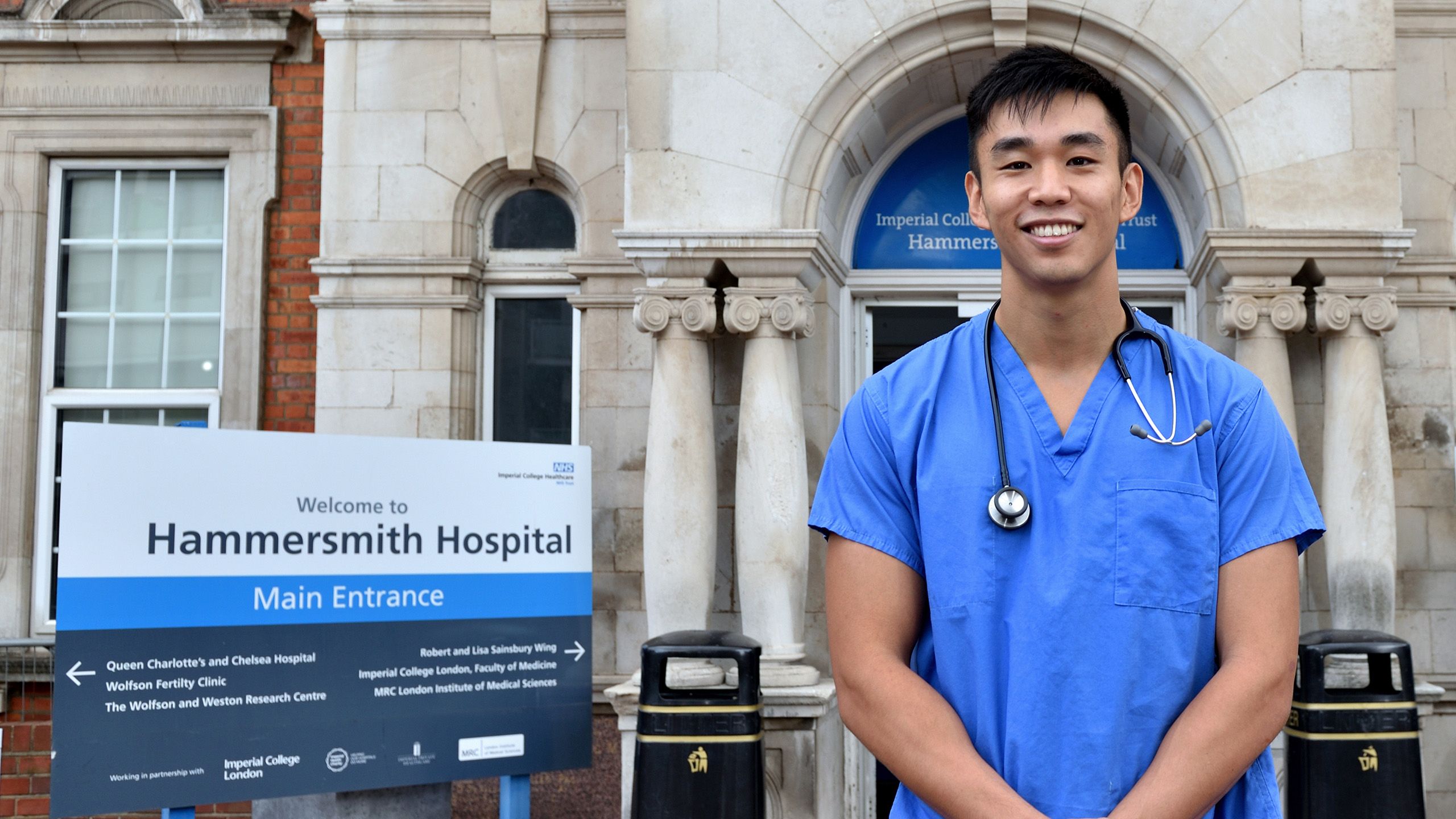
Imperial's Alumni Awards recognise the outstanding achievements of our alumni community and the variety of ways they are making a real impact across the globe.
The Emerging Alumni Leader Award celebrates our rising stars, innovators, game-changers and future leaders.

